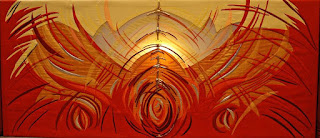Reflections on the text – I Kings 18 - The Contest with the Priests of Baal

Read the text here: I Kings 18 Or better than reading - listen to the setting of this text in the magnificent oratorio "Elijah" by Felix Mendelssohn. This performance is given by students from Boston University. The other performers are listed with the video. The section which includes the contest with the priests of Baal begins at 0:34:50 and concludes at 0:55:16 with the aria "Is Not His Word Like Hammer." "Elijah" - Felix Mendelssohn Life and Death Perhaps the title is too extreme; perhaps it is too black and white – Life and Death. Many of us get very uncomfortable when confronted with either/or – black and white statements. We prefer things to be a bit more nuanced; a bit more grey. We like to consider options as it regards our spiritual and even our moral life – many of us chafe at the suggestion that there is right or wrong and that there is nothing in between. And we are very good at creating rationalizations w...


